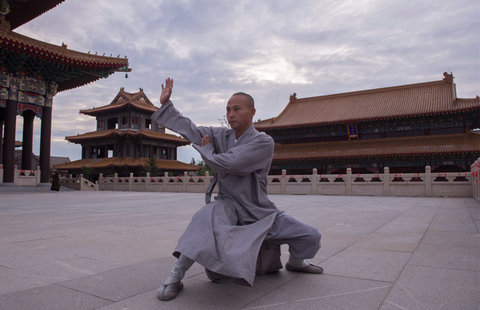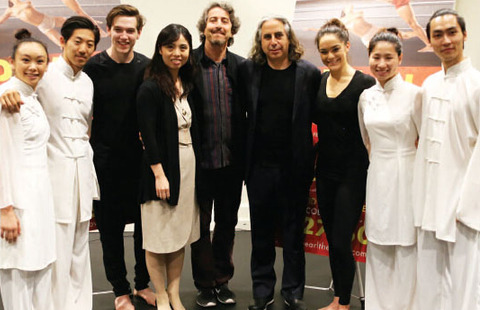US noses out China in math tournament
Updated: 2015-07-27 10:17
By Jiang Hezi in New York(China Daily USA)
|
|||||||||
Team USA won first place at this year's International Mathematical Olympiad (IMO) held in Chiang Mai, Thailand, reclaiming the crown after 21 years. The six US high school students defeated teams from 103 countries, including its strongest rival, China, which has won 14 times over the past 20 years.
Po-Shen Loh, head coach of team USA, said technology has done the US its biggest favor.
"Something has changed very much in the last 10 years that may be contributing to the USA ultimately winning this year," said Loh. "Now there is everything you might ever need to learn for free on the Internet."
"China and the US are very much ahead of the rest of the countries, which means our performance was not bad," said Chinese team coach Li Qiusheng. "Although four points behind the US, China was 20 points ahead of third-place Korea."
"During recent years, the differences between the strong countries are getting smaller," Li said. "As in international basketball, the American team used to be the winner all the time. But now other countries are catching up, and sometimes beating the US. This doesn't mean US basketball is declining, rather other countries are getting better. I think we can view math competitions the same way."
Unlike regular classroom math problems, competition math goes beyond plugging numbers into formulas. Instead, the questions focus on using what's been learned in school to invent, combine and extend. Creativity is far more important than memorization.
"You never really know what challenge you will face until you open the test," said Zhuoquan "Alex" Song, a member of the Canadian team who was educated in the US and Canada and the only contestant to get a perfect score. It's the hardest kind of competition to prepare for, he added.
Every year, six middle school students are picked from every country through months of exams.
The tournament consists of two tests on two days, each lasting four and a half hours. Students have to solve three problems a day, with each question worth seven points adding up to a 42-point total.
The first questions on each day are the easiest and grow progressively harder. Most years, few students solve the third questions.
According to Yu Chenjie, a veteran competitor on the Chinese team who got second place among 577 students, the hardest questions were more approachable this year while the two mid-level questions were very much harder.
"Our team didn't expect the change of difficulty levels, so we didn't allocate our time very well," Yu said.
Going by the medal count, this was the hardest competition ever, with only 26 students earning gold medals. Last year there were 49 gold metals, and the year before 45.
Loh said the main goal of Mathematical Association of America, which organizes team USA for the IMO, "is not just to compete, but rather to give students a lot of challenges which are beyond what they normally see in school and introduce them to the kind of mathematics that is creative and fun."
hezijiang@chinadailyusa.com
- Tian'anmen gets early makeover for grand parade in September
- China eyes deepened cooperation with overseas NGOs
- Beidou navigation system moves a step closer to global coverage
- Integration will bring opportunity for overseas talent
- Ten photos you don't wanna miss (July 20-26)
- Sansha city, three years after its founding
 Elvis Festival pays tribute to the King of Rock 'n' Roll
Elvis Festival pays tribute to the King of Rock 'n' Roll
 Four-color rice turns paddy field into artwork
Four-color rice turns paddy field into artwork
 Images capture modern life of a warrior monk
Images capture modern life of a warrior monk
 The world in photos: July 20 - 26
The world in photos: July 20 - 26
 Amazing landscape of China in white and black
Amazing landscape of China in white and black
 Across America over the week (July 17- July 23)
Across America over the week (July 17- July 23)
 Unusual but true: 'Love' conquers all
Unusual but true: 'Love' conquers all
 Six dead as rainstorms wreak havoc in China
Six dead as rainstorms wreak havoc in China
Most Viewed
Editor's Picks

|

|

|

|

|

|
Today's Top News
Beijing condemns Somali attack, mourns deaths
China eyes deepened cooperation with overseas NGOs
Monster Hunt breaks Chinese box office record
Olympic bid panel cites city's merits
Astronomers discover most Earth-like planet yet
Seattle Chinatown leader killed in shooting
Flight details of Obama's Kenya trip leaked
2 killed, several injured in Louisiana theater shooting
US Weekly

|

|







